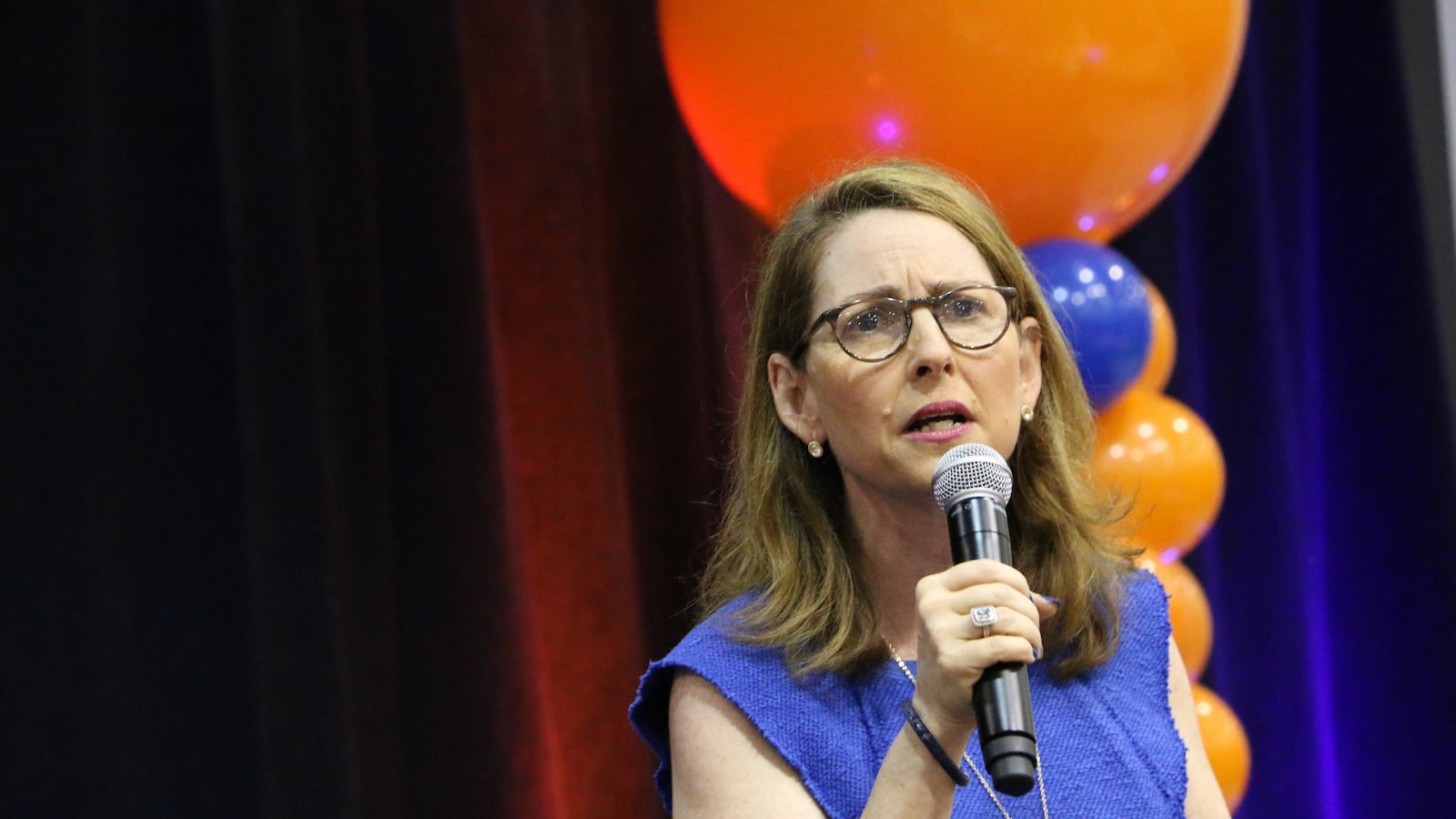New York City’s largest charter network — and its pugnacious founder — are the next subject of a popular podcast set to kick off a new season on Friday.
“StartUp,” a podcast that focuses on how entrepreneurs build their companies, is devoting its upcoming season to Success Academy, one of the most familiar and controversial names in New York City education.
Success Academy is known both for its students’ high test scores and for its founder and CEO Eva Moskowitz, who has been a fixture in city politics since her days on the City Council, where she was a reliable critic of what she saw as unacceptable shortcomings in New York’s district schools. In the decade since leaving office, Moskowitz has created what is arguably a parallel school system: A 47-school charter network that educates roughly 17,000 New York City students.
Moskowitz has pushed the charter network to the center of a heated debate that has played out in New York and across America about what types of schools are best situated to educate low-income students and students of color.
The podcast series, which will release episodes weekly, promises to explore that question. Its first episode begins by examining why some parents gravitate to Success Academy and other charter schools. It does not explore any of the common critiques of the network, which is also known for high suspension rates and a high-profile case of a principal listing students on a “got to go” list.
The podcast is likely to tread a bit of familiar territory: The second episode, for instance, is set to be devoted entirely to Moskowitz, who has been extensively profiled and remains a fierce critic of the city’s education department and Mayor Bill de Blasio.
But the podcast — which was given unusual access to Success teachers, students, and classrooms — also has the potential to focus on aspects of the schools’ culture and classroom life that go beyond well-worn debates.
Chalkbeat has been covering the conversation around Success, and what happens in its classrooms, for years. If you’re a podcast aficionado just tuning in, here are some stories that will help you get up to speed:
Inside the test-prep effort: At Success Academy schools, high-octane test prep leaves nothing to chance (May 2014)
“Before the state math tests began this week, the Success Academy charter school network had left nothing up to chance.
School leaders had provided teachers with color-coded agendas with precise instructions for every few minutes of test days, along with boxes of supplies that might come in handy — from pencils and tissues to extra clothes for students and deodorizing powder to sop up vomit.”
The discipline debate: Beyond the viral video: Inside educators’ emotional debate about ‘no excuses’ discipline (March 2016)
“On one side of that debate: educators and parents who argue that the no-excuses approach is not only defensible, but the only way to solve racial and class inequities in schools and beyond. These people grant that the no-excuses style has imperfections; indeed, moments like the distressing reprimand captured in the video of Dial make it very much a work in progress. But they say the strong academic results of “no excuses” schools prove that the model only needs evolving, not fundamental change.
On the other side: An equally passionate group arguing that no-excuses practices are systematically abusive and a form of institutional racism, undermining any academic gains they may enable. These critics are not just speculators. They include people who have taught and still do teach at no-excuses schools.”
Growing pains: Behind the scenes, Success Academy’s first high school spent last year in chaos. Can Eva Moskowitz turn it around? (Aug. 2018)
“Success Academy, New York City’s largest network of charter schools, graduated its first high school students in June to much fanfare. But behind the scenes, according to nearly two dozen parents, students, and current and former school officials, its first high school spent last year in crisis.”
Why it matters: How Eva Moskowitz is remaking public education as we know it, for better and — if we aren’t careful — much worse (Dec. 2017)
“As these networks grow, overseeing them will become both more important and more difficult. Already networks in several states have rejected requests for documents, saying that public-records laws don’t apply to them. Once the Success empire includes 100, 200, or even 300 schools, will regulators feel comfortable exerting their ultimate authority to shut a school down? Or will charter networks become, like banks, too big to change?”

